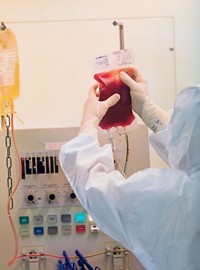Advertisement
Grab your lab coat. Let's get started
Welcome!
Welcome!
Create an account below to get 6 C&EN articles per month, receive newsletters and more - all free.
It seems this is your first time logging in online. Please enter the following information to continue.
As an ACS member you automatically get access to this site. All we need is few more details to create your reading experience.
Not you? Sign in with a different account.
Not you? Sign in with a different account.
ERROR 1
ERROR 1
ERROR 2
ERROR 2
ERROR 2
ERROR 2
ERROR 2
Password and Confirm password must match.
If you have an ACS member number, please enter it here so we can link this account to your membership. (optional)
ERROR 2
ACS values your privacy. By submitting your information, you are gaining access to C&EN and subscribing to our weekly newsletter. We use the information you provide to make your reading experience better, and we will never sell your data to third party members.
Business
Third Rock- and Atlas-backed Magenta launches
Biotech will try to overhaul stem cell transplants
by Lisa M. Jarvis
November 16, 2016
| A version of this story appeared in
Volume 94, Issue 46
Backed by $48.5 million in funding from Third Rock Ventures and Atlas Venture, Magenta Therapeutics has launched to try to make stem cell transplants safer, more effective, and potentially applicable to a broader range of patients.
By replacing sick cells with healthy ones, stem cell transplants can cure certain types of blood cancer. But they are also risky and are usually only attempted after other therapeutic options have failed.
Magenta CEO Jason Gardner breaks down the current weaknesses of stem cell transplantation into three categories: patient preparation for the procedure, stem cell harvesting, and failure of transplanted cells to grow and produce healthy cells. Magenta, with a long list of prominent stem cell biology and transplantation experts as cofounders, will go after all three areas in parallel.
For decades, patients undergoing a transplant have first endured intensive chemotherapy or total body radiation to suppress production of sick stem cells. “Instead of subjecting patients to a sledgehammer,” Gardner says, Magenta is developing targeted antibodies against some of the more than 400 antigens expressed on stem cells, allowing the cells to be selectively removed.
Magenta, which has a team of 20 that should double by late next year, is working on new approaches for quickly harvesting large amounts of healthy stem cells. It’s also exploring how new technologies can be applied to improve the properties of harvested stem cells.
Ultimately, Gardner hopes that modernizing stem cell transplant tools will broaden the number of people eligible for the procedure. In addition to the late-stage blood cancers now treated with stem cells, earlier-stage cancers, autoimmune diseases such as multiple sclerosis, and genetic blood disorders such as sickle cell anemia could also be addressed.





Join the conversation
Contact the reporter
Submit a Letter to the Editor for publication
Engage with us on Twitter